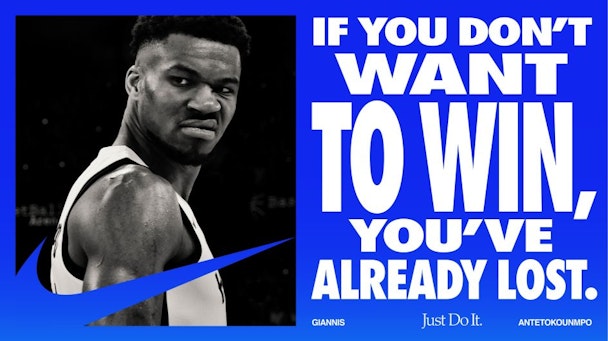Nike will lose if it thinks ‘winning isn’t for everyone’ inspires us
BBD Perfect Storm’s Fernando Desouches dissects how Nike’s Olympics creative may be memorable but carries a toxic narrative.

“I have no empathy. I don’t respect you. I’m never satisfied. I have an obsession with power.” No, it’s not Andrew Tate’s latest diatribe. It’s the new Nike Olympics ad titled ‘Winning isn’t for everyone.’
Narrated by Willem Dafoe to a frenetic orchestration of strings, it shows top athletes in full competition mode; gruelling facial features and gestures.
And, in my opinion, the messaging is very, very worrying.
As someone who works daily with brands to help them grow through positive male narratives, I feel dismayed when a creative authority like Nike fuels the opposite. The first shot of a young girl looking defiantly at the camera validates this narrow definition of winning, which can easily be transferred on to young girls and boys, unaware of the consequences.
Given the brand’s recent financial woes where challengers muscle in on its market share, it’s not surprising it wants to shout, ‘We’re back!’ But prioritizing an aggressive win or lose narrative to showcase success flies in the face of what research tells us we want to hear. And, crucially, what is good for us.
The ad channels the no-holds-barred energy around winning a defining ongoing political trope and a departure from the more empathetic, inclusive messaging we’ve seen from Nike over the years. It feels particularly charged in the run up to the US election, and, at a time when collaboration and empathy seem critical to solve the world’s big problems, is this the right message for a brand with as much cultural cache as Nike? Have we really moved so far from the Colin Kaepernick days of uniting and standing defiantly in the face of hate? Instead, it’s gone from ‘Us’ and ‘We’ to ‘Me’ and’ ‘I.’
Explore frequently asked questions
The messages and values that Nike broadcasts are currency to many. Therefore, when it proclaims ‘I have no remorse. I have no sense of compassion. I want to take what’s yours and never give it back.’
It’s validating this as OK and safe. It’s telling people these are desirable values and providing dangerous role models further ammunition to peddle very risky narratives. ‘Role models’ that mirror the insecurities of young men and boys to build narratives with values not too far from those we hear in this campaign. It’s no secret that many young men are lost about who they are and how to deal with the current pressures they face. Do we want to tell the next generation that treading on the dreams of others makes us winners?
The social power of this ad is extremely high. How will the brand control the narrative and how this messaging is used online and where are they going with this campaign platform in the long term?
Advertisement
The campaign is divergent from other ads aired around the Paris 2024 games and stands out from the crowd in its messaging. Rather than celebrating the values of the Olympics; excellence, respect and friendship, it flies in the face of them - mocking them, if anything.
The implications of the campaign
I worked with Samira Brophy, senior creative excellence director at Ipsos, using its Creative Spark tool to test the ad to find out how 150 respondents per market (UK and US) felt about it, to examine what implications this campaign has both for Nike and society more broadly.
Sure, it got people’s attention and had exceptional response scores on uniqueness, talkability and surprise. But this is what might make the ad dangerous. It works creatively, as most Nike ads do, but this time, the creativity acts as a container for a potentially dangerous set of values.
But we also found some fundamental issues; the biggest one being how poor the branding is. In both the UK and US the brand link to Nike was well below the market norm - as it should be. This is very un-Nike. Watching again, viewers don’t reward Nike by rating it well on performance relative to the category, brand closeness or likelihood to choose the brand. How wonderfully ironic.
Advertisement
As Samira points out, “If the plan is to stick to this more edgy and competitive tone of voice going forward, that’s something. If not, then why sacrifice empathy over creativity when it’s not landing branding or impact?” Samira then shared Ipsos research showing that advertising demonstrating creativity in combination with empathy has a 20% stronger performance than average.
As I’m writing this, USA gymnastics superstar Simone Biles has just won gold in the all-around final in Paris. Would Simone, who bravely spoke out with her teammates about the horrendous abuse they endured and who stepped down from the Tokyo Olympics to safeguard her own mental health, believe in this ad? Would the outstanding Olympians, many of whom say they wish they could break their medal into a hundred pieces to account for the teams supporting and believing in them, instead show no compassion, empathy or gratitude?
The answer is no.
Suggested newsletters for you
And that gives me hope. Nike is one of the biggest and best brands in the world but the direction of its new campaign flies in the face of what we love about it. Nike should go back to bringing out the best in us, not the worst.
